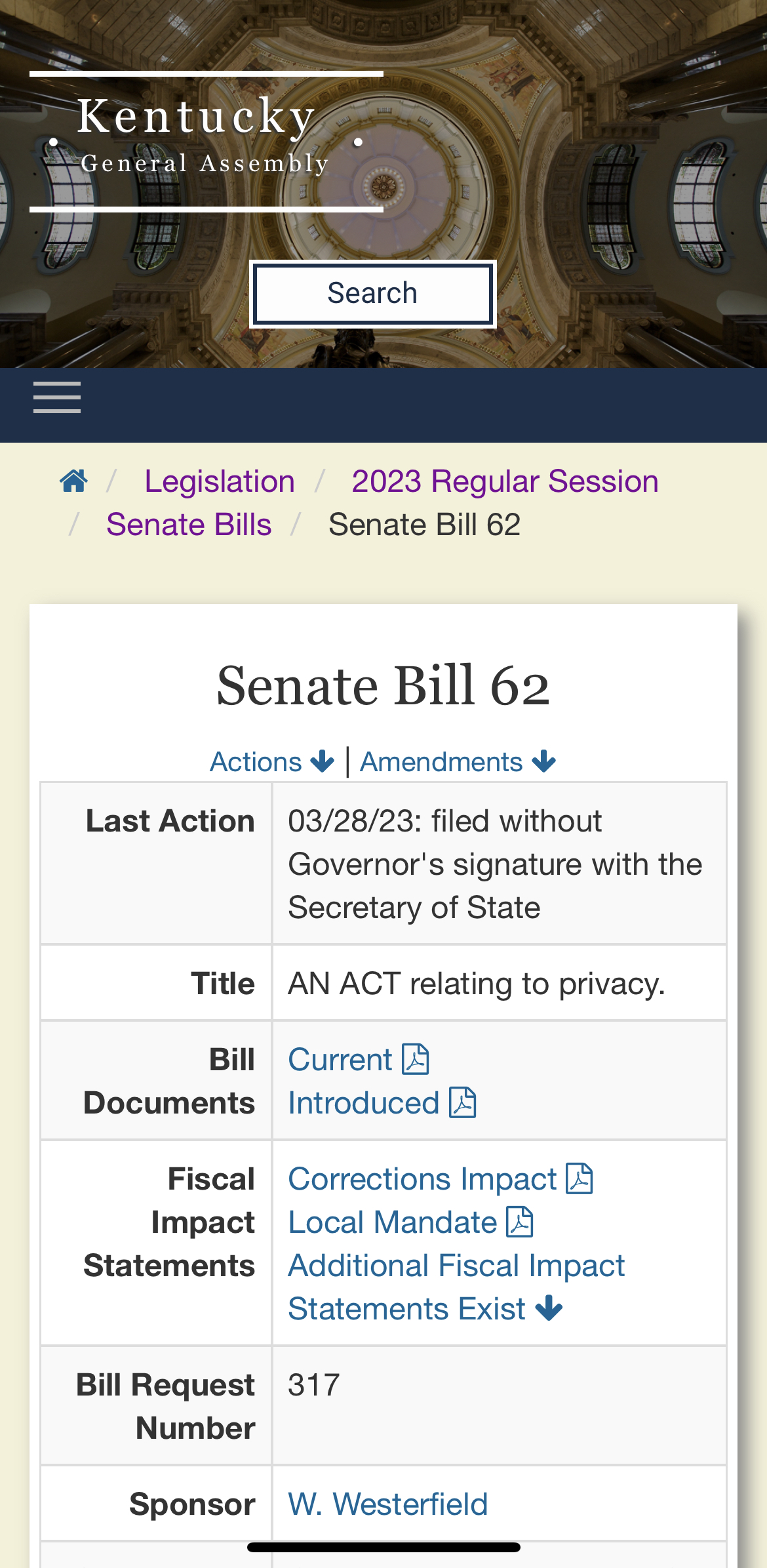
"The Personal Privacy Protection Act," Senate Bill 62, became law on March 28 when it was "filed without Governor's signature with the Secretary of State."
https://apps.legislature.ky.gov/record/23rs/sb62.html
The new law will take effect on June 29.
Both the Kentucky Press Association and the Kentucky Open Government Coalition raised vigorous objections which were summarily ignored.
The KPA warned of dire consequences in its Statement of Opposition:
"The bill’s ill-advised, overbroad provisions unconstitutionally restrict the public’s First Amendment right to access court proceedings and will burden Kentucky’s courts with frivolous lawsuits. If passed, SB 62 will—for the first time—authorize personal civil and criminal liability for the disclosure of truthful information legally obtained."
https://kyopengov.org/blog/kentucky-press-association-opposes-senate-bi…
The Kentucky Open Government Coalition's objections focus "on the potential that officials will improperly invoke the new categorical exclusion for 'personal information,' as narrowly defined in HB 62, to deny access to 'personal information' that has generally been deemed accessible under the open records law privacy exception --KRS 61.878(1)(a) -- where the public's interest in disclosure outweighs the privacy interests that may be implicated by disclosure.
"The great body of Kentucky law construing the personal privacy exception -- which turns on an examination of competing public and private interests -- is threatened by a categorical exception like the exception for 'personal information' found in SB 62.
"The problem is illusory. The threat is real."
https://kyopengov.org/blog/illusory-problem-real-threat-kentucky-lawmak…
https://kyopengov.org/blog/senate-bill-repudiating-university-louisvill…
https://kyopengov.org/blog/following-four-week-recess-lawmakers-introdu…
But perhaps the dissenters to the United States Supreme Court opinion Americans for Prosperity Foundation v Bonta -- which Senate sponsor Whitney Westerfield argued his bill merely codifies -- said it best in rejecting the majority opinion:
"Today’s analysis marks reporting and disclosure requirements with a bull’s-eye. Regulated entities who wish to avoid their obligations can do so by vaguely waving toward First Amendment 'privacy concerns.' It does not matter if not a single individual risks experiencing a single reprisal from disclosure, or if the vast majority of those affected would happily comply. That is all irrelevant to the Court’s determination that California’s requirement is facially unconstitutional. Neither precedent nor common sense supports such a result."



